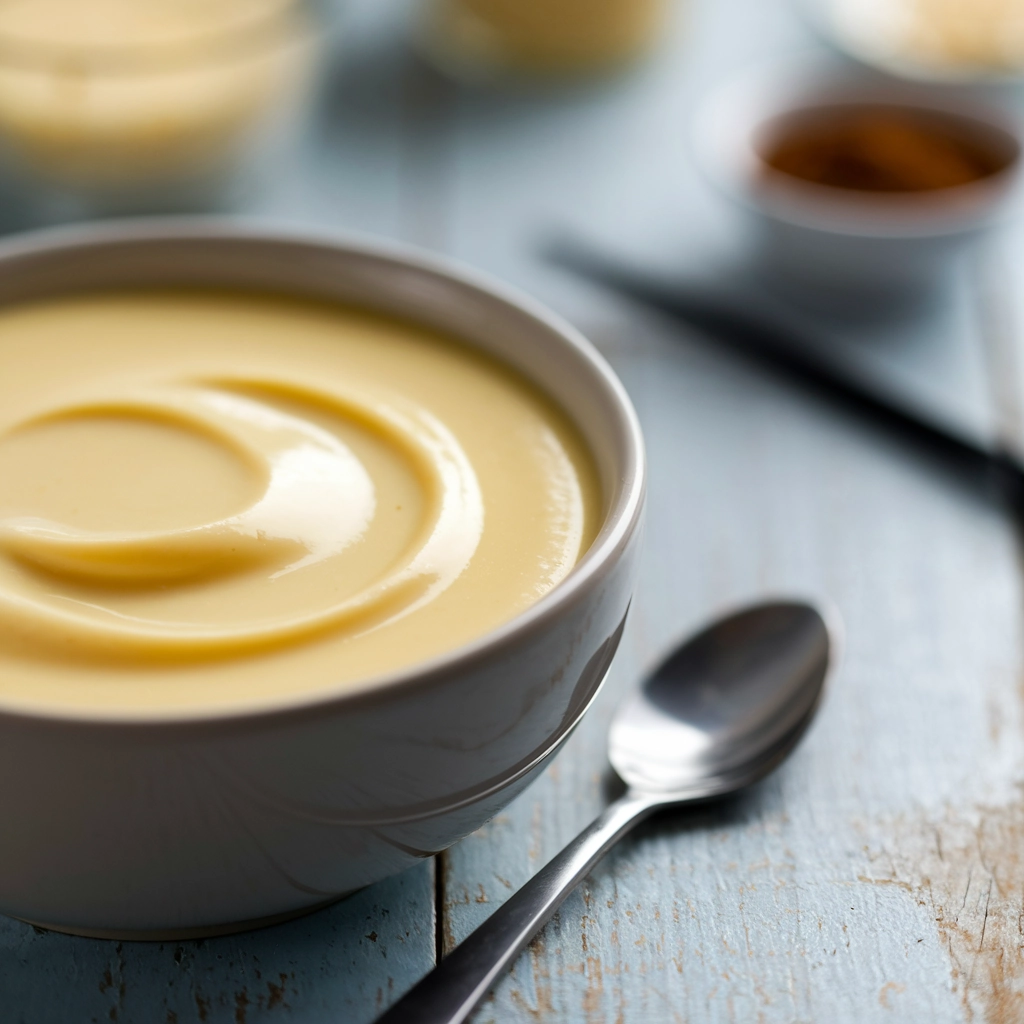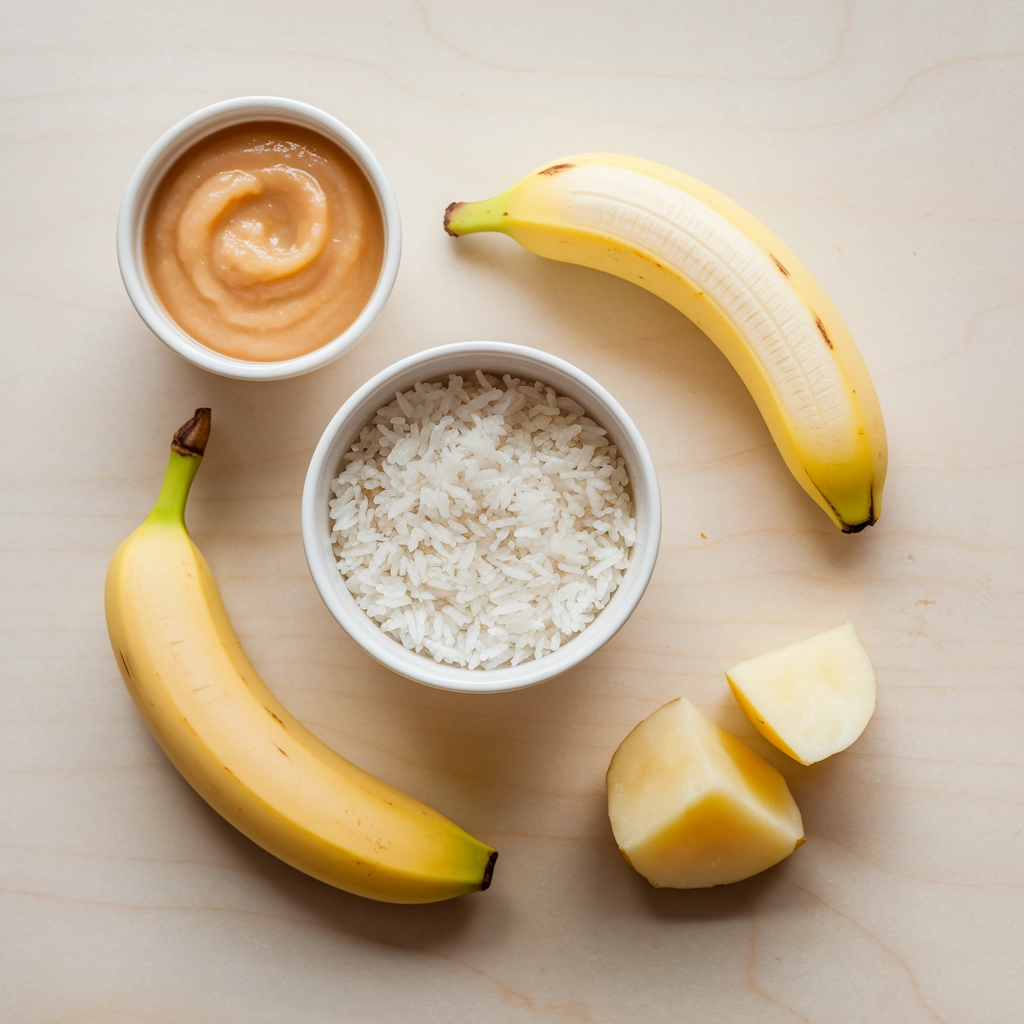When digestive distress strikes, many of us turn to home remedies passed down through generations. One such remedy that frequently sparks curiosity is custard powder. But can this common pantry staple really help with diarrhea? At Home Remedy Shop, we’re committed to exploring natural solutions that work with your body’s inherent healing abilities, so let’s separate myth from fact regarding this interesting potential remedy.
Understanding Diarrhea: Causes and Traditional Approaches
Diarrhea is characterized by loose, watery stools occurring more frequently than normal. While uncomfortable, it’s actually your body’s natural way of eliminating harmful substances. Common causes include:
- Viral or bacterial infections
- Food sensitivities or intolerances
- Stress and anxiety
- Certain medications
- Digestive disorders
Traditional home approaches to diarrhea have historically focused on dietary modifications that add bulk to stool and replenish lost fluids and electrolytes. For centuries, people have relied on natural solutions before modern pharmaceuticals became available—and many of these time-tested remedies continue to prove effective today.
The Origins of Custard Powder as a Remedy
Custard powder was invented in 1837 by Alfred Bird, whose wife was allergic to eggs. This egg-free alternative to traditional custard contains primarily cornstarch, flavorings, and colorings. Its use as a diarrhea remedy likely stems from the binding properties of cornstarch, which can add bulk to loose stools.
Throughout history, starchy foods have been recommended for digestive issues across various cultures. The BRAT diet (Bananas, Rice, Applesauce, Toast), for example, has long been suggested for those experiencing diarrhea. Custard powder, with its high starch content, falls into a similar category of easily digestible, binding foods.
What’s Actually in Custard Powder?
To understand whether custard powder might help with diarrhea, let’s examine its typical ingredients:
- Cornstarch: The primary ingredient, making up 75-85% of custard powder
- Salt: Added in small amounts for flavor enhancement
- Flavorings: Usually vanilla, though other varieties exist
- Colorings: Typically yellow food coloring (often tartrazine or other artificial colors)
- Sugar: Present in varying amounts depending on the brand
The most relevant component when discussing digestive benefits is cornstarch, which has been used historically to thicken liquids—both in cooking and, potentially, in the digestive tract.
It’s such an easy recipe to make yourself, so we really recommend taking these ingredients (without the artificial colorings) and adding some milk or vegetable milk to make a great anti-diarrhea mixture.
Custard Powder for Diarrhea: Examining the Evidence
The Potential Benefits
Custard powder may offer some benefits for those experiencing diarrhea, though these are primarily based on the properties of its ingredients rather than clinical studies:
- Stool Bulking Properties: The high cornstarch content may help absorb excess water in the intestines, potentially adding bulk to loose stools. As one study published in the Journal of Clinical Gastroenterology notes, “Starchy foods can help increase stool consistency during acute diarrheal episodes.”
- Easy Digestibility: When prepared properly, custard can be gentle on an irritated digestive system.
- Caloric Content: During bouts of diarrhea, maintaining caloric intake is important, and custard provides easily digestible calories.
- Electrolyte Contribution: The small amount of salt in custard powder may contribute minimally to electrolyte replacement, though it’s insufficient on its own.

The Myths Debunked
Despite these potential benefits, several myths about custard powder need addressing:
Myth 1: Custard powder can instantly stop diarrhea.
Fact: There is no scientific evidence supporting the claim that custard powder can immediately halt diarrhea. While it may help thicken stools somewhat, it’s not a cure-all.
Myth 2: Custard powder is a complete treatment for diarrhea.
Fact: Even if custard powder provides some relief, it doesn’t address the underlying cause of diarrhea, which might require a more comprehensive approach.
Myth 3: Custard powder is appropriate for all types of diarrhea.
Fact: For certain individuals, particularly those with lactose intolerance (if prepared with milk) or corn allergies, custard powder could potentially worsen symptoms.
How to Use Custard Powder Appropriately
If you’re considering custard as part of your natural approach to managing diarrhea, here’s how to use it appropriately:
Proper Preparation
For digestive support, consider these preparation methods:
- Use plant-based milk alternatives if you suspect dairy sensitivity (coconut, rice, or almond milk work well)
- Prepare it with less sugar than recipe calls for, as excess sugar can worsen diarrhea
- Consume in moderation – start with small portions of about ½ cup
- Opt for homemade versions rather than pre-packaged custards that may contain additives
When to Consider Custard
The timing of custard consumption matters:
- Not during the acute phase of severe diarrhea where complete bowel rest might be more beneficial
- Introduce after the most intense symptoms subside as part of a gradual return to normal eating
- Best consumed at room temperature rather than cold, which can stimulate intestinal contractions
More Effective Natural Approaches to Diarrhea
While custard powder may offer mild benefits, several other natural remedies have stronger traditional and scientific backing:
Hydration Solutions
Maintaining proper hydration is critical during diarrhea. Consider these natural electrolyte replacements:
- Coconut water: Naturally rich in electrolytes and gentler than commercial sports drinks
- Homemade oral rehydration solution: Mix 6 teaspoons of sugar and ½ teaspoon of salt in 1 liter of clean water
- Herbal teas: Particularly ginger, chamomile, and peppermint, which have anti-inflammatory properties
According to a study in the World Journal of Gastroenterology, “Proper hydration remains the cornerstone of diarrhea management, with effective oral rehydration solutions saving millions of lives annually.”
Binding Foods
These foods have traditionally shown better results than custard powder:
- Cooked white rice: Contains binding starches similar to cornstarch but with additional nutritional benefits
- Bananas: Provide potassium and pectin, which helps absorb liquid in the intestines
- Applesauce: Contains pectin while being easily digestible
- Plain boiled potatoes: Offer a gentle starch source with potassium

Natural Astringents and Anti-Inflammatories
Several plant-based remedies have demonstrated effectiveness against diarrhea:
- Blackberry and raspberry leaf tea: Contains tannins that reduce intestinal inflammation
- Chamomile tea: Soothes the digestive tract with anti-inflammatory compounds
- Turmeric: Contains curcumin, which has powerful anti-inflammatory properties
- Carob powder: A safer alternative to chocolate with natural binding properties
Probiotics for Gut Health
Supporting your gut’s beneficial bacteria can help resolve diarrhea more quickly:
- Fermented foods: Yogurt (if dairy is tolerated), kefir, sauerkraut, and kimchi
- Prebiotic foods: Once acute symptoms subside, foods like bananas, asparagus, and oats can feed beneficial bacteria
Comparing Custard Powder to Pharmaceutical Options
At Home Remedy Shop, we believe in the body’s innate healing capabilities and the superiority of natural approaches over pharmaceutical interventions whenever possible. Here’s why natural remedies like custard powder (despite its limitations) and other options mentioned above might be preferable to over-the-counter medications:
- Addressing the cause, not just symptoms: Natural approaches support the body’s elimination process rather than artificially halting it
- Fewer side effects: Many anti-diarrheal medications can cause constipation, dependency, or interact with other medications
- Supporting overall gut health: Natural remedies often provide additional benefits beyond symptom relief
As noted by renowned naturopath Dr. John Douillard, “The goal shouldn’t be to stop diarrhea immediately but to support the body through its natural cleansing process while preventing dehydration and maintaining comfort.”
When to Seek Professional Natural Health Support
While most cases of diarrhea resolve within a few days with proper natural care, some situations warrant professional guidance from natural health practitioners:
- Diarrhea lasting more than 3-4 days
- Signs of significant dehydration (extreme thirst, dry mouth, decreased urination)
- Blood in stool
- Severe abdominal pain
- Fever above 102°F (39°C)
Consider consulting a naturopath, homeopath, or other natural health practitioner who can recommend personalized herbal protocols, homeopathic remedies, or other natural approaches that address your specific situation.

Making Your Own Digestive-Friendly Custard
If you’d like to incorporate custard as part of your digestive recovery, here’s a modified recipe designed to be especially gentle:
Gut-Friendly Rice Milk Custard
- 2 tablespoons custard powder (preferably without artificial colors)
- 1 tablespoon maple syrup or honey (less than traditional recipes)
- 2 cups rice milk (easier to digest than dairy)
- 1/4 teaspoon vanilla extract
- Pinch of salt
- Mix custard powder with 3 tablespoons of rice milk to form a paste
- Heat remaining rice milk until warm (not boiling)
- Whisk in the custard paste, stirring continuously
- Add sweetener and vanilla once thickened
- Cool slightly before consuming
This modified version reduces potential irritants while maintaining the soothing qualities of traditional custard.
Conclusion: The Verdict on Custard Powder
Custard powder isn’t a miracle cure for diarrhea, but its main ingredient—cornstarch—may provide some mild relief by adding bulk to loose stools. However, it’s just one small tool in a more comprehensive natural approach to digestive health.
For effective relief from diarrhea, focus on:
- Proper hydration with electrolyte-rich fluids
- Gentle, binding foods including the BRAT diet components
- Herbal teas with anti-inflammatory properties
- Gradual reintroduction of probiotics
- Listening to your body’s natural healing process
Remember that diarrhea is often your body’s way of eliminating harmful substances—a natural cleansing process that shouldn’t be stopped completely but rather supported and managed for comfort while addressing the root cause.
For more natural remedies for common ailments, visit our complete guide to digestive health or explore our shop for natural health products that support your body’s inherent healing wisdom.
Disclaimer: This information is educational in nature and not intended to diagnose, treat, cure, or prevent any disease. Always consult with a qualified natural health practitioner before making significant changes to your health regimen, particularly for children, pregnant women, or those with existing health conditions.
External resources:
- Treatment for diarrhea
- Treatment of viral gastroenteritis (“stomach flu”)
- Definition & facts for diarrhea
- Symptoms & causes of diarrhea
- NIH
- Eating, Diet, & Nutrition for Diarrhea
- Eating, Diet, & Nutrition for Lactose Intolerance
- Diarrhea

